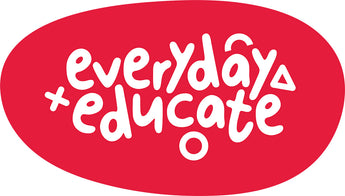Standardized tests are assessments that are administered in the same way to all students in a certain grade or age group, regardless of their individual abilities or needs. They are usually multiple-choice or short answer/essay and are usually timed. They are commonly used to evaluate student performance in subjects such as math, reading, and science. The results of these tests are often used to compare student performance within a school, district, or state and to measure progress over time. They can also be used to make high-stakes decisions, such as grade advancement, graduation, or college admission.
The effectiveness of standardized testing in helping students learn more is a topic of debate. Some argue that standardized tests are an important tool for measuring student performance and holding schools accountable for their results. They can help educators focus their teaching on the most essential skills and knowledge and identify areas where students may need extra support.
However, others argue that standardized testing can be a poor measure of student learning and can create a "teaching to the test" mentality, where teachers focus solely on preparing students for the test rather than providing a well-rounded education. These tests can also put a lot of pressure on students and may not be an accurate measure of the student's understanding. Additionally, the tests are usually one-time and doesn't take into account the student's progress over the course of the academic year.
Overall, while standardized tests have been used for a long time to measure student performance and assess the effectiveness of educational programs, the question of whether or not they have helped students learn more is still a subject of ongoing debate.
There are several alternatives to standardized testing that have been proposed as ways to assess student learning and performance. These alternatives include:
- Performance-based assessments: These assessments require students to demonstrate their knowledge and skills through tasks such as projects, presentations, or essays, rather than through multiple-choice or short-answer questions. This type of assessment is thought to provide a more accurate and holistic picture of what students know and can do, as it allows them to apply their knowledge and skills in a real-world context.
- Formative assessments: These assessments are given during the learning process, rather than at the end, to help teachers and students identify areas where students need additional support. They can take the form of quizzes, classwork, or homework, and are usually not graded. Instead, they are used to give students and teachers feedback on what students know and what they still need to learn.
- Portfolio assessments: These assessments require students to compile a collection of their work over a period of time. This work is usually chosen by the student and can include writing samples, videos, photos or other tangible artifacts that reflect their learning progress. This type of assessment provides a comprehensive view of a student's learning journey and their engagement with the curriculum.
- Self-assessments: This type of assessment is where students are asked to reflect on their own learning and understandings. These could be in form of surveys, questionnaires, or interviews. These assessments allow students to become more aware of their own learning process, strengths, and weaknesses, which can be beneficial for their own self-development.
It's important to note that none of these alternatives are perfect, and each has its own set of advantages and disadvantages. Some educators argue that multiple forms of assessment are needed to provide a more comprehensive understanding of student learning. Furthermore, the use of alternative assessment methods might be more challenging in terms of scalability, reliability, and validity.



 Chat with Us
Chat with Us